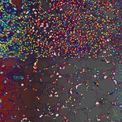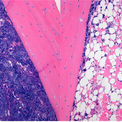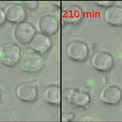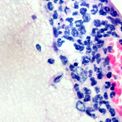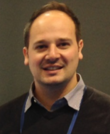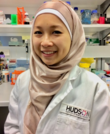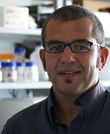Dr Ben Croker
Associate Professor
Division of Allergy, Immunology, and Rheumatology, Department of Pediatrics, School of Medicine, UCSD Center for Immunity, Infection, and Inflammation
University of California, San Diego
bcroker@health.ucsd.edu
Contract research opportunities
We support the UCSD BSL-3 and ABSL-3 facilities for investigating COVID-19 and coccidioidomycosisLatest News
YP Zhu, M Speir, Z Tan, et al. NET formation is the default epigenetic program controlled by PAD4 in apoptotic neutrophils. Science Advances 2023, 9(51): eadj1397. PMID:38117877
Li et al., Conformational flexibility in neutralization of SARS-CoV-2 by naturally elicited anti-SARS-CoV-2 antibodies. Communications Biology 2022, 5(1):789. PMID: 35931732
Zhu et al., Immune response to intravenous immunoglobulin in patients with Kawasaki disease and MIS-C. Journal Clinical Investigation 2021. 131(20):e147076. PMID: 34464357
Z Inde, BA Croker et al., Age-dependent regulation of SARS-CoV-2 cell entry genes and cell death programs correlates with COVID-19 disease severity. Science Advances 2021, 7(34): eabf8609. PMID:34407940
Speir et al., Ptpn6 inhibits caspase-8- and Ripk3/Mlkl-dependent inflammation. Nature Immunology
2020, 21, 54-64. PMID: 31819256.
Research Activities
We are an inflammation laboratory with a broad interest in the intersection of cell death, neutrophil biology, and innate immunity. Here are some of our recent research programs which seek to understand the pathophysiology of human inflammatory diseases:- We identified roles for GSDME- and MLKL-dependent cell death in neutrophil extracellular trap formation. PAD4 is activated in response to plasma membrane disruption by GSDME and MLKL, and is essential for generation of NETs. Parallel studies of GSDMD-dependent NET formation and non-canonical inflammasome activation provides a genetic framework to explore the relationship between apoptotic and non-apoptotic neutrophil cell death, NET generation, and responses to infection.
- We identified a novel Ptpn6 Y208N mutant mouse strain causing cutaneous inflammation of the feet. Mice carrying neutrophil-specific deletions of Ptpn6 develop neutrophilic dermatoses caused by MLKL- and Caspase-8-dependent inflammatory cell death driving IL-1 release.
- As part of a U19 grant, we investigate host-pathogen interactions in Coccidioidomycosis. This soil-borne fungal pathogen is prominent in the USA, and central and south America, causing chronic respiratory disease and in severe cases disseminated disease.
- Our laboratory identified a novel phenomena called shuttling in mammalian cells, which involves the transfer of intracellular fungal pathogens from neutrophils to macrophages. We are studying how pathogens captured by neutrophils at distal sites of infection are shuttled to dendritic cells with the greatest capacity for antigen presentation.
- A clinical study of patients with Kawasaki disease and the COVID-19-associated multisystem inflammatory syndrome in children (MIS-C) identified IL-1b+ neutrophils as a key immune cell targeted by intravenous immunoglobulin using a novel cell death pathway dependent on PI3-kinase and NADPH oxidase.
